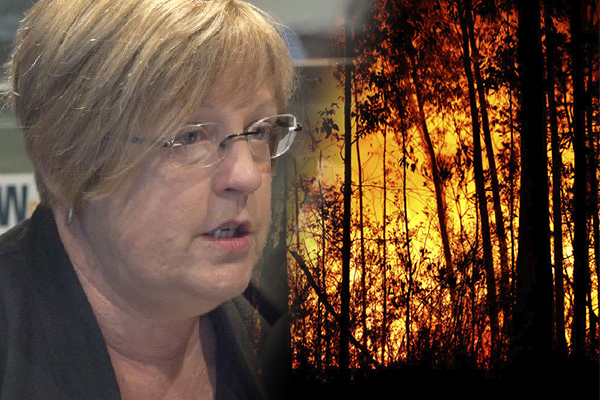‘Explosive situation’: Emergency Services Minister’s warning amid ‘unprecedented’ fire conditions

Last night Premier Daniel Andrews took the unprecedented step of declaring a state of disaster, as bushfires ravage Victoria’s east.
Emergency Services Minister Lisa Neville said the move is a necessary one, in the face of an “explosive situation”.
She urged people to take notice of the warnings, warning of fears a number of bushfires burning in the state’s east and NSW could join, forming a mega fire which doesn’t stop until it reaches the ocean.
“We’ve got this massive fire across the south-east of Australia, and Victoria has got a part of it, NSW has got a part of it, and eventually it will potentially be all one,” she said.
“It will burn to the coast.
“The incident controller the other day said to me, down in Bairnsdale, that you would need something like 200mm of rain in a five day period.”
Here is the official statement released by the Victorian government, with fire conditions expected to worsen again tomorrow.
These laws were created after Black Saturday and it’s the first time they’ve been used.
We can’t stress this enough.
Listen to them. pic.twitter.com/igCfP47heq
— 3AW Melbourne (@3AW693) January 2, 2020
Ms Neville urged people to leave early.
“This is an evacuation that has never been done in Victoria’s history. It’s unprecedented,” she told 3AW’s Neil Mitchell.
“Go, and go early. Follow the advice.”
The state of disaster declaration gives the government greater powers to tackle the fires. It’s the first time these powers have been used since the legislation was created in the wake of the 2009 Black Saturday bushfires.
In theory, police can arrest people who refuse to obey orders to evacuate, but Ms Neville said this is unlikely to happen.
“The practicalities of doing that, Victoria Police are not going to be arresting hundreds of people, that’s going to just tie up resources,” she said.
Under the extended powers granted authorities may use privately owned land as required to fight the fires and protect communities, without the owner’s permission.
“If for example, there was something about being required to consult with someone about the use of their property for an airfield or for a staging area, you would be able to suspend that,” Ms Neville said.
Press PLAY below for more.
Image (background): Darrian Traynor / Stringer















